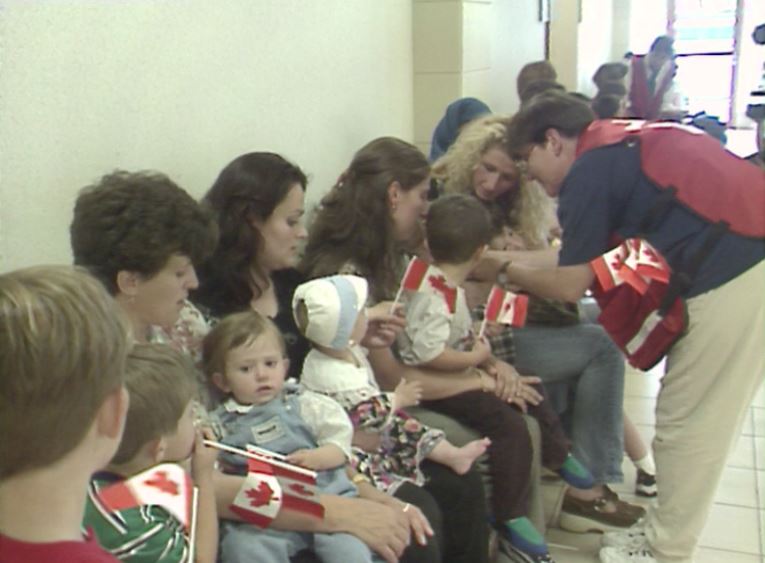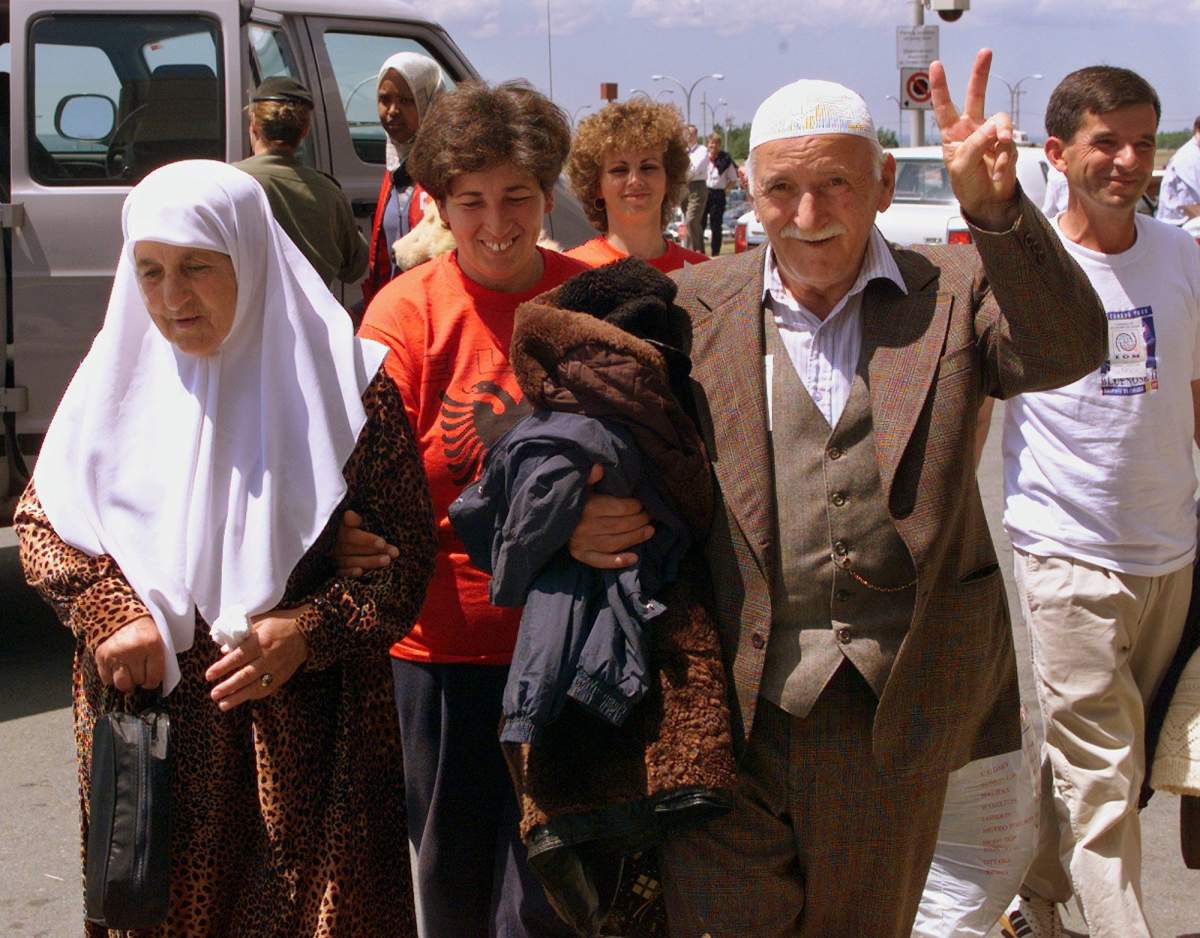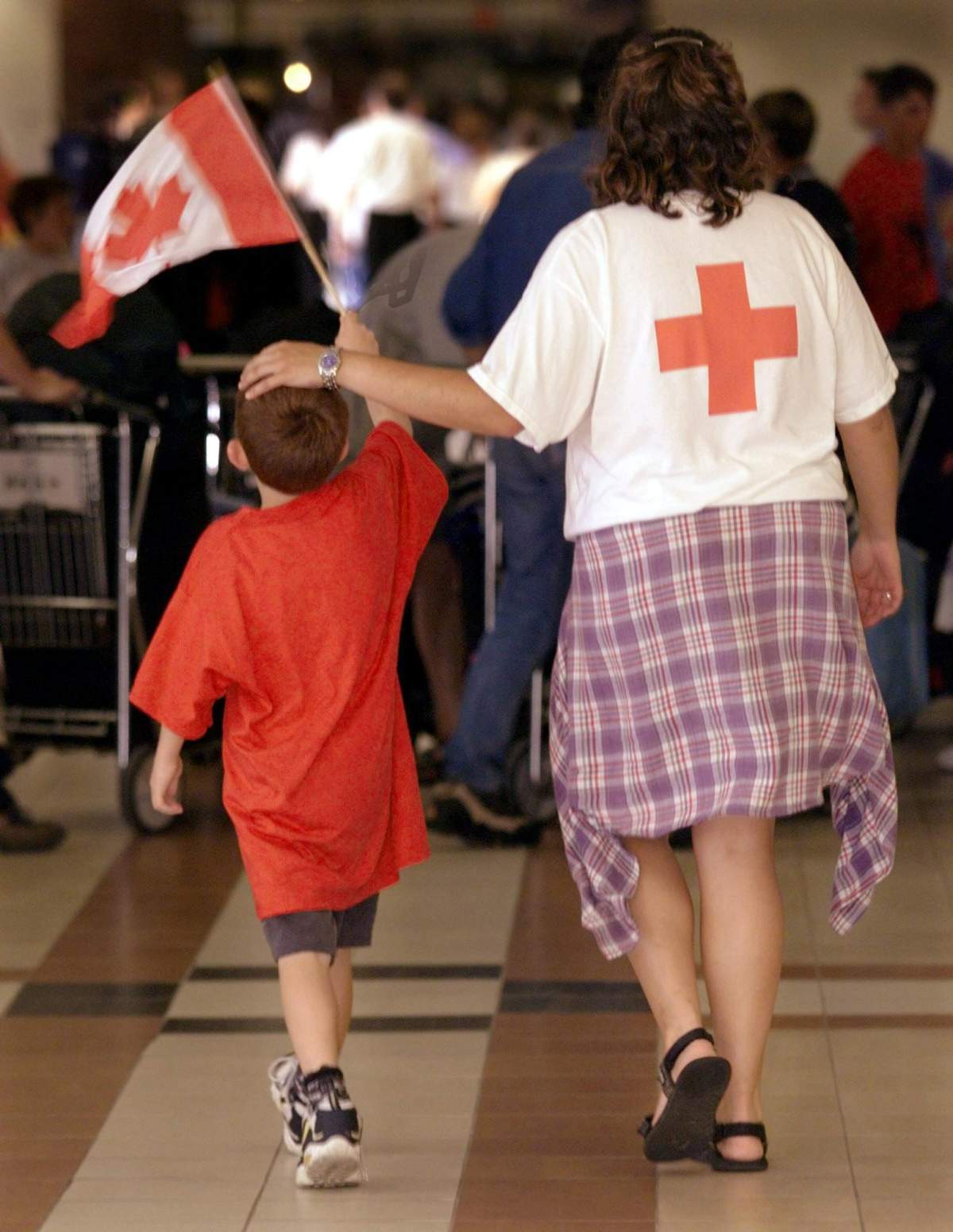It has been 20 years since a brutal civil war broke out in the small European territory of Kosovo.

By the end of the conflict, 15,000 people would lie dead and hundreds of thousands would be forced out of their homes — becoming refugees and fleeing to far-flung countries across the globe.
It was during the civil war that Canada opened its doors to over 5,500 refugees through Operation Parasol, a project that would come to be affectionately known as the Kosovar airlift.
Nova Scotia played a key part with about half of the refugees landing in the province.
When stability returned to Kosovo, about one-third of the refugees chose to return home while the rest made the decision to stay and rebuild their lives in Canada.
WATCH: Alicia Draus looks back the time Canadians opened their doors to over 5,500 Kosovar refugees

Bedrije Rexhepi is among those who chose to create a new home. But she admits it wasn’t an easy decision.
“Growing up I had a very very good childhood, and we were happy, had a beautiful place, beautiful country. Still is beautiful, still is in my heart,” Rexhepi said.
Tensions grew between the Albanian Kosovar population and the Federal Republic of Yugoslavia in the 1990s. Ethnic Albanians were forced out of their jobs, schools and universities, and eventually their homes.
“You work so hard, you build everything, everything that we did with my husband in 22 years was gone in five minutes in the flames” she recalled.
“That was hard, but you have no choice. One day you get kicked out of your home.”
Monavera Loshi Llapi says she was in university when things began to change.
She was among those kicked out of university but says the community stood together and built a parallel life, holding classes at private homes. But then things got worse.
“They started killing lots of people for no reason,” said Loshi Llapi.
Loshi Llapi and her then-husband moved to Pristina, the capital city of Kosovo, and says things were calmer there for awhile.
But the war escalated in 1999.
She recalls in March of that year when police went door-to-door kicking people out of their homes. On the sidewalk were tanks and soldiers threatening to kill everyone if they didn’t obey.
“They forced us to go to the train station, put us on a train and departed to Macedonia,” said Loshi Llapi.

Get breaking National news
WATCH: Looking back at Operation Parasol

A choice for a better life
Both women admit that Canada was not their first choice when they were forced to flee.
They had hoped to stay in Europe, closer to home for when the war ended.
Germany and Austria accepted 16,000 refugees collectively, but Loshi Llapi says when she applied all the spots were full, and the process to get a visa was lengthy.
After that, she interviewed with Canada.
“They said tomorrow morning is a flight, so we decided right away not to lose a chance,” said Loshi Llapi.
She was pregnant at the time, and says it all came down to deciding what was best for her child.
“I was thinking how can I raise this kid back home in the war?” she said. “I couldn’t imagine after 30 years my kids to not have a good childhood, so I decided to come to Canada.”
Rexhepi says she also made the choice that she felt was best for her family of eight.
Her eldest daughter moved to Switzerland to be with her husband and the rest of the family was accepted to Canada.
“When things like that happen you just think how to be safe, how to survive, how to go forward — when you have kids, especially,” she said.
“Because when you have a family, when you have kids, you don’t think of anybody else except your children.”
WATCH (Nov. 18, 2017): Kosovo president visits CFB Halifax, thanks Canada for role in helping Kosovar refugees

Arriving in Canada
In May 1999, as many as 300 Kosovar refugees were arriving in Nova Scotia daily through Operation Parasol.
Loshi Llapi and Rexhepi were both on the same plane from Macedonia, arriving in Nova Scotia on May 15.
Despite neither having Canada as their first choice, both women say they were overwhelmed by their reception when they arrived at CFB Greenwood.
Rexhepi said she remembers that her family was so tired when they got off the plane.
“We got out of the plane and seen the people all around and waving and applauding with the smiles. That was… wow. Somebody is forcing us to leave our home, they don’t want us to live in our place and somebody is opening their hearts, their doors for us. That was amazing,” she said.
“Because I was pregnant, my legs were very very swollen so I couldn’t move,” said Loshi Llapi. “I can’t forget how the ambulance came and get me from the plane, and they hug me like they’ve known me forever. I’m never going to forget that.”
Making the choice to call Canada home
As stability returned to the region they had once called home, about a third of the refugees made the choice to head back to Kosovo.
“Some people, they went back after a month, and it was so hard seeing them go back and not being able to go because I was pregnant,” said Loshi Llapi, but she admits with a newborn on the way, she wasn’t sure she wanted to return, not knowing what life would be like for her child.
Now, 20 years later she’s glad she stayed in Canada.
“I have three kids — two boys and a girl. My oldest is almost 20, he was born four months after we got here,” she said.
“My second one is 17-years-old, he’s in grade 12 in September and he joined the army, and my daughter is 15 years old. She is going next year to high school and she’s taking the IB program. She is doing so great.”
Loshi Llapi says she is thankful for what Canada has offered her and for the opportunities she has been able to give her children.
She has also been an active member of the community herself. She often volunteers at her kids’ school and at church, she’s a member of the school board and has coached basketball for nearly 20 years.
“I think about the volunteering people did when I came here so I want in some way to give back to these people and this community,” she said.
Rexhepi had also initially considered returning home when the war was over but says that changed shortly after arriving in Canada.
She recalls her husband calling her one day while he was out of town for work, asking her if she’d written their names down to go home.
“I said ‘oh yeah, I’ll do it,’ which I did not actually because we got information that the houses which we had was burned completely inside, just the walls left so we had no place to stay,” Rexhepi said.
So, rather than return, she worked hard to make Canada her new home.
Within four months Rexhepi found her first job working in fast food — she says she just wanted to start making her own money.
Rexhepi says she tried a few other things before getting a job as a hairdresser, something she did back in Kosovo.
After working for a company for a year, she took a risk and opened her own business.
“I started working and here I am, going for 18 years — which is amazing, you know,” she said.
As she looks back over her 20 years in Canada, she has no regrets choosing to stay.
“I miss my home, but when I go back there, I miss Canada.”
Commemorating 20 years
On Friday evening, the local Kosovar community in Halifax will be hosting an event at Pier 21 to commemorate the 20th anniversary of their arrival.
The evening will include music, dance, art and talks and will act as a chance to celebrate their contributions to the community.
And as the former refugees celebrate 20 years in Canada, they are also celebrating all those who helped them in a time of need.
“It is very important to thank Canada for having us for 20 years,” said Loshi Llapi.
“They brought us here and we are safe and we are secure and we’ll always be thankful for the rest of our lives,” said Rexhepi.














Comments